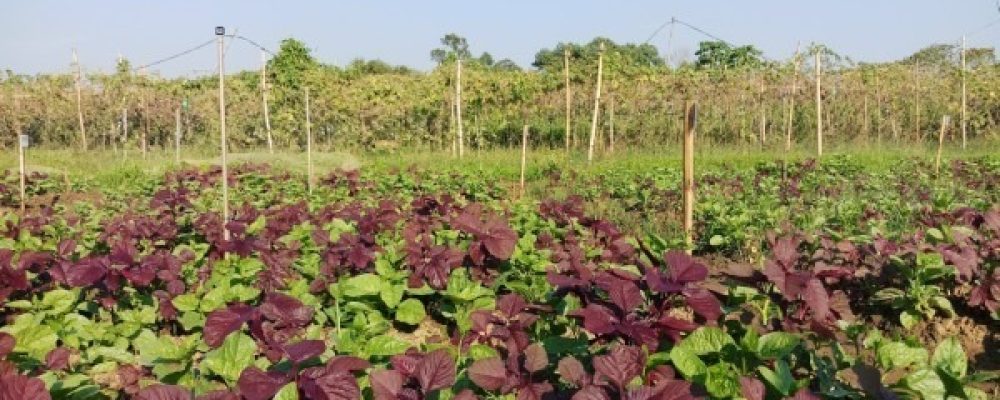ASSET Project is pleased to announce that seven members of the Agroecology Learning Alliance in Southeast Asia (ALiSEA) Network have been awarded the Small Grant Facilitation (SGF) in 2022. These grants were based on a Call for Proposal that focused on three essential topics aimed at promoting agroecology and food systems in the region.
The ALiSEA Network, consisting of organizations and individuals committed to sustainable agriculture and food systems, plays a pivotal role in fostering collaboration and knowledge sharing. The Small Grant Facilitation program was designed to empower ALiSEA members and their partners, supporting them in their efforts to address the pressing challenges faced by agricultural communities in the Sub-Mekong Region.
The grants were awarded to two members from Cambodia, two members from Laos, and three members from Vietnam. Each initiative addresses a specific topic, aligning with the goals of the Call for Proposal and contributing to the advancement of agroecology and sustainable food systems.
In Cambodia:
- HEKS Cambodia co-implementer with Agrismart Innovation Co., ltd and Kompong Thom’s PDAFF will work with private sector and local government to support cashew producers in Kompong Thom province. The intiative’s focus is on training farmers in agroecological practices to mitigate the impact of climate change on cashew production. By addressing the lack of technical knowledge among small-scale farmers and reducing reliance on agro-chemicals for pest and weed management, it aims to enhance resilience and increase yields. The work will also leverage ongoing initiatives like the “Green Cashew” to disseminate successful agroecological practices and connect producers with domestic and international buyers demanding chemical-free cashew nuts.
- ECOLAND co-implementer with Graduate School – RUA will be conducting a Multidimensional Evaluation of Agroecology (MuLAgE) in Battambang province. The study aims to evaluate existing ALiSEA members’ farms using the FAO-TAPE tool, focusing on agroecology profile and development criteria. Through a participatory process, qualitative and quantitative aspects of the project will be assessed, providing evidence-based evaluation documentation.
In Laos:
- CLICK co-implementer with DTEAP will be implementing an initiative titled “Link and Learn Agroecology from the Field” to promote sustainable agriculture and increased cooperation in the area of knowledge management with ALiSEA members, capture at least 14 agroecological best practices, shared and learned by members of ALiSEA, Lao Farmer Network and Department of Agriculture Extension and Cooperative.
- CDEA co-implementer with Thongmang Organic Agriculture Cooperative will address food loss and waste issues in the region due to a tropical climate, large population, and limited post-harvest techniques. The grant aims to enhance small farmers’ market access and increase the value of their produce through improved production practices and the utilization of renewable energy. By introducing the super-durable Solar-dryer dome, developed by Silpakorn University, farmers will reduce harvest loss and enhance the market value of their agricultural products.
In Vietnam:
- CGFED co-implementer with PAN Asia pacific will implement an initiative that recognizes the crucial role of agroecology in safeguarding human health and the environment. Given the significance of monitoring and controlling pesticides in agricultural practices, it emphasizes the involvement of farmers, especially women farmers who remain active in rural areas. The grant aims to implement pesticide use monitoring using CPAM tools and biodiversity monitoring. The results will serve as the foundation for communication events, advocating for reduced pesticide use, especially highly hazardous pesticides, and promoting agroecological practices.
- SPERI co-implementer with Farmer Union of the Po E commune will facilitate the transition towards a more diversified and integrated farming system in the upland farming areas of Kon Tum province. This grant aims to address the detrimental effects of excessive herbicide use on farming practices in the region. Through applied research and experimental cultivation of native medicinal herbs and edible herbs, pilot farming areas will be equipped with capacity development and demonstration sites. The grant intends to expand stakeholders’ skills and knowledge while raising awareness about the value of crop diversification.
- CARES co-implementer with FCRI will conduct experiments and assess the effectiveness of combining healthy nursery-raised seedlings with non-till culture practices. The initiative aims to control weeds, enhance crop development, improve soil quality, and increase farmers’ income. Through farmer participation, experiments will be designed and implemented on Participatory Guarantee System (PGS) vegetable farms, taking into account local vegetable systems and farmer preferences. The grant will monitor various aspects, including weed control, crop growth and productivity, labor consumption, plant health, and soil improvements.
These grants reflect the diverse range of topics and approaches within the field of agroecology. They not only contribute to the development and dissemination of innovative agroecological practices but also provide valuable insights into the performance and impacts of agricultural and food systems initiatives implemented by ALiSEA members.
The Small Grant Facilitation is an integral part of the ALiSEA network’s commitment to strengthening partnerships, building skills, and expanding the network’s efforts of inclusiveness and representation. By supporting joint actions and collaborations between members and non-members, the grants aim to create a collective impact that fosters sustainable agricultural practices throughout the region.
This Small Grant Facilitation (SGF) initiative is implemented through ALiSEA Network, a sub-component of the ASSET Project, which receives financial support from the French Development Agency (AFD), the European Union (EU), and the French Facility for Global Environment (FFEM). Additionally, one of the grants awarded to HEKS in Cambodia is supported by the Belgian Development Agency through Uni4Coop.
To learn more about the Small Grant Facilitation projects supported by ALiSEA, you can visit the website and explore the Small Grant Facilities

